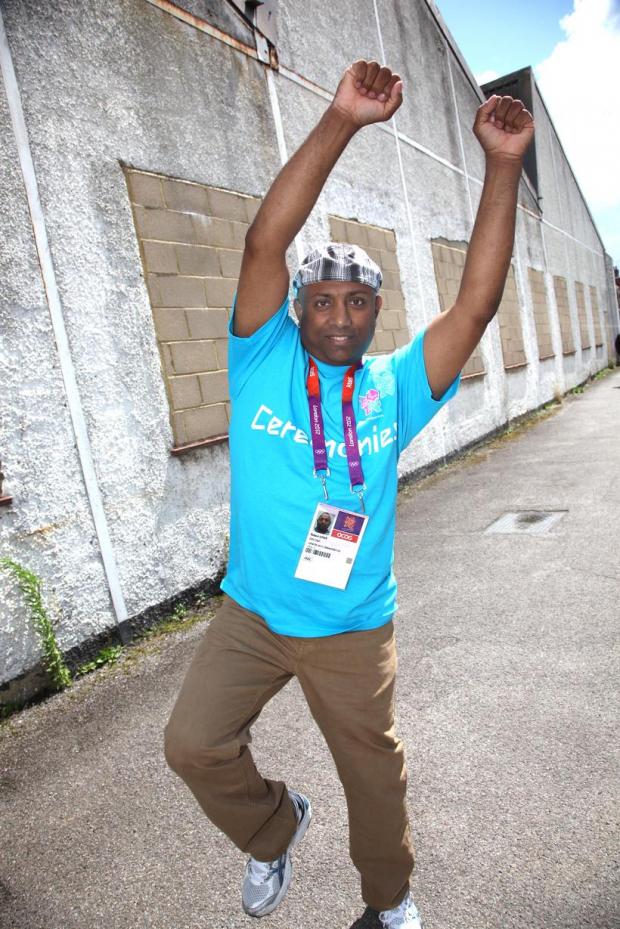As part of the Deaf Awareness week in the UK, some parents share their experiences in raising a deaf child. Here Paul and Ruth Neesham tell their story to Sunderland Echo.
http://m.sunderlandecho.com/lifestyle/parents-of-deaf-baby-inspire-others-with-their-story-1-4532643
Being told their beautiful baby is deaf plunged Paul and Ruth Neesham into a frightening world. In Deaf Awareness Week, this Sunderland couple are doing their utmost to inspire others. Women’s editor Linda Colling reports.
IT’S severe to profound deafness. I can remember sitting there and thinking ‘I don’t want to cry’ but then I just sobbed. I couldn’t stop,” says Ruth Neesham, of the moment she and husband Paul were told that devastating diagnosis about their newborn son, Jack, who was just three weeks old.
“It’s so hard to explain. I didn’t understand,” says Ruth, 33, who like Paul was totally unprepared and plunged into a frightening and unknown world.
With no deafness in their family and a son with perfectly normal hearing, Adam, four, Paul, says: “We literally cried for a month, dark days.”
They struggled to take in the crippling news that hit them like a sledgehammer. It was heartbreaking and Ruth recalls how hearing a song or a piece of music and she would break down at the thought that Jack would never hear such beautiful sounds. “It just broke my heart,” she says.
Then there was breaking the news to the family. Paul, 36, a sport’s sub editor at the Echo says: “It just brought it all back. It was such a raw wound.” And Ruth adds, “They wanted to stay strong for us but they needed time to digest it. It was totally out of the blue and you just don’t understand how this happened and how you are meant to deal with it. Ninety per cent of deaf children are born to hearing families like ours. And you have no idea of this world or how to cope with it.
“You grieve for the baby that you thought you were getting. I wouldn’t change him for the world, apart from I would love his ears to work. You are sad and praying for what your family life is going to be like. There’s not a day goes by that I don’t wish it was different.”
At nine months, Jack is a joy. A beautiful blue-eyed boy who radiates happiness. He’s progressing normally and it’s amazing how far Paul and Ruth have come in their determination to give their son the very best chance. From the day they were told that heartbreaking news, they have been supported by the National Deaf Children’s Society (NDCS).
When Jack was just 10 weeks old they went on a family weekend to a hotel in the area where they met others who had travelled the same road and were an inspiration to them.
Ruth says: “We met people who had been in our position and you can see how far you can come. It was very well organised by the NDCS. They shared experiences and what their children had achieved.” And Paul adds: “It was very inspirational to hear their stories, knowing that there is light at what was a very dark tunnel in the early days. And from all the help we have had from NDCS, friends and family, it’s all positive.”
They left heartened that nothing was going to stop Jack.
Playing on the floor at their home in Lutterworth Road, Tunstall, Jack is as bright as a button, watching everything, his facial expressions responding to their smiles and his parent’s total commitment to communicate with him. They talk to him as if he could hear and use baby signs to help him develop his communication skills. Big brother Adam makes him laugh a lot. And Jack is very much a daddy’s boy.
Paul goes to a British Sign Language course at Bede Sixth Form Centre for two hours every week with his sister and mother-in-law and then passes on to Ruth what he has learnt.
She will soon be returning to her job with Sunderland City Council and talks of how she struggled in the early days with stares, nudges and whispers from people as they noticed the baby with hearing aids.
She says: “It was really difficult taking him out. I wanted to protect him from it. You can see people looking. It’s alright for an older person to have a hearing aid but when it’s on a baby some people don’t know how to react. It’s ignorance and people don’t know how to deal with a baby with hearing aids. But recently, when I took Adam to nursery one of the mothers spotted me and said ‘Oh, your little boy has hearing aids. My little girl has them too!’” In nine months Jack has had a staggering 79 hospital appointments. He’s there every two weeks having impressions taken for new moulds for his hearing aids as he’s growing fast and also having hearing tests.
Ruth says: “Everyone at Jack’s hospital appointments have been wonderful, especially the Audiology Department at Sunderland. Ed Brown and his team are doing an amazing job.”
They don’t know what has caused his deafness – it could be a gene called Connexin 26 – which means that as a couple they have a one in four chance of having a deaf child. But nothing has been confirmed yet.
Ruth has just helped launch a playgroup for parents of toddlers and pre-school tots with a hearing loss. They meet in the Fingerpaint Nursery, Ryhope every fortnight on a Monday 1pm-3pm. The next meeting is on May 14.
Ruth can’t believe how far they have come since that bleak diagnosis and says: “It’s one of those things that will never change. However much technology can help Jack, whatever kind of hearing aids or if he gets cochlear implants, he is still going to be deaf. It’s not like anything can fix it at all.
“But there is hope and it gives us strength hearing how well other people’s children have done which just shows anything is possible for Jack. In the future he can do whatever he wants to do. We will make sure that he gets all the right support.”
In gratitude of all the support they have had and which is still on-going from NDCS, Paul is doing the Great North Run in September and the Great North Bike Ride on August 26 cycling 60 miles from Seahouses to Tynemouth to raise money for the charity.
Ruth says without NDCS they would have been completely lost. She says: “I wouldn’t know where to start. I wouldn’t have met any other families and wouldn’t understand what appointments we have to go to or what his future prospects are and what support is available to us. They do wonderful work.”
And in this touching appeal for sponsorship, Paul has written: “On the 24th August 2011, I was told the devastating news that my baby boy Jack was born profoundly deaf. He was only 23 days old. My world completely fell apart. He can’t hear my voice, he can’t hear music, he can’t hear the birds sing. Every little thing that we take for granted. It breaks my heart.
“However, if it wasn’t for the help and support of the National Deaf Children’s Society I don’t know how I would have begun to cope. They have helped me and my family deal with Jack’s deafness, providing advice and support.
“This charity is very dear to my heart and I can’t begin to imagine what I would do without it. Please give all you can to help this invaluable support continue for deaf children and their families.”
•To sponsor Paul go to justgiving.com/littleears or text Jack97 £5 to 70070
•For more information on the Hearing Impaired Playgroup contact lynndryden@dsl.pipex.com
EVERY year five or six babies are born in Sunderland with a significant hearing loss in both ears.
And this is being picked up at between four and eight weeks of age through the Local Newborn Hearing Screen Programme (NHSP) provided by City Hospitals Sunderland NHS Foundation Trust. This covers about 7,000 babies born across Sunderland, South Tyneside and Gateshead.
Ed Brown is a Consultant Clinical Scientist (Audiology) and Local Director of NHSP. And he is in the front line of breaking the news to parents, like the Neeshams, that their child has a significant hearing loss.
Before the introduction of NHSP in 2006, significant hearing loss was typically not identified until about 12 months of age. The earlier the detection means that there are much better outcomes for the child and family.
High quality Digital Sound Processing hearing aids are designed specifically for young children. The Royal also has the benefit of its own earmould laboratory which means that specialised earmoulds can be made quickly for babies and young children.
About three children a year might be referred for assessment for a cochlear implant usually to the North East Cochlear Implant Programme based in Middlesbrough. A cochlear implant is not appropriate for everyone and is for severe-profound hearing loss, where assessment has shown that there is limited benefit from conventional hearing aids.
Most children who are accepted for cochlear implantation will usually receive an implant in both ears. The cost of one cochlear implant, including surgery and followup is about £30,000.
Mr Brown and his team work very closely with colleagues based in local Education Service (Sensory Support) and many of the early appointments with the family are held jointly. He says: “We also have excellent links with medical colleagues in the Ear Nose and Throat Department, children’s doctors, speech and language and other health care professionals. We try to make sure that we communicate effectively with families and other professionals. All our reports are written to parents, carers with other professionals copied in as appropriate.
“We are committed to improving services and have engaged with national quality initiatives in audiology such as the Quality Enhancement Tool (QET) and Improving Quality In Physiological Diagnostic Services (IQIPS). However, we know that we may not get things right all of the time and we hope that by having an open an honest approach families feel able to contact us and discuss any issues with us.
“The local NHSP is subject to a national quality assurance process every 18 months. The last assessment was in March 2011 and we were highly rated (our overall score was 4.24 out of 5).
“The challenge is to ensure that the through high quality services, support and good communication between professionals that a child with hearing loss has the very best chance of developing communication along the same pathway as their normally hearing peers.
Mr Brown has 23 years experience in clinical audiology. He is a lead examiner for the British Academy of Audiology and has also contributed to the development of national protocols for children’s audiology and various quality assurance activities for both adult and children’s audiology services.
Article from Sunderland Echo.





